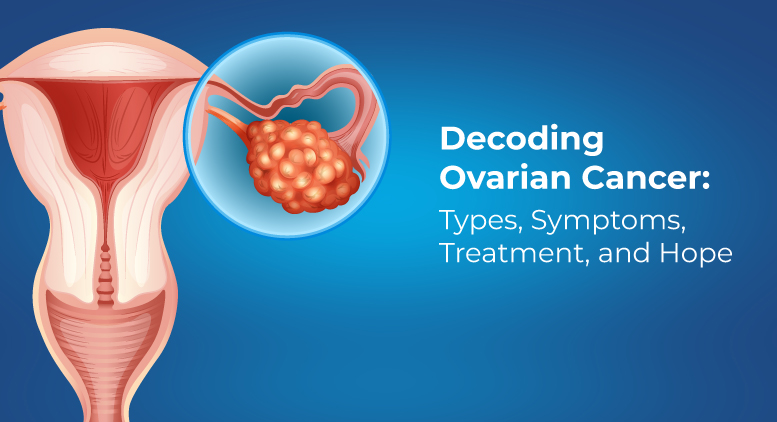
Cancer is a word that can strike fear in anyone's heart, but with knowledge comes empowerment. One type of cancer that affects thousands of women worldwide is ovarian cancer. By understanding the basics and recognizing the symptoms early, one can navigate the pathway to successful treatment and hope.
Understanding Ovarian Cancer:
Ovarian cancer is a malignancy in women's ovaries, a pair of reproductive glands. These glands produce eggs (ova) and the hormones estrogen and progesterone. Although ovarian cancer ranks fifth in cancer deaths among women, awareness and early detection can make a significant difference.
Exploring Ovarian Cancer Types:
There are three primary types of ovarian cancer based on the cells from which they originate:- Epithelial tumors: About 90% of ovarian cancers are epithelial tumors. They arise from the cells that cover the outer surface of the ovary.
- Stromal tumors:These originate from cells that produce hormones. They account for approximately 7% of ovarian tumors and can often be detected at an early stage.
- Germ cell tumors: These tumors are much rarer and develop from the cells that produce eggs.
Unraveling the Causes and Risk Factors:
The exact cause of ovarian cancer is not known, but certain risk factors might increase its likelihood:
- Age: Most ovarian cancers develop post-menopause.
- Family history: Those with close relatives diagnosed with ovarian or breast cancer might have a higher risk.
- Genetic mutations: Specifically, BRCA1 and BRCA2 gene mutations can increase risk.
- Hormone replacement therapy: Long-term use and large doses might increase risk.
- Endometriosis: Women with endometriosis might have a higher risk of developing ovarian cancer.
Recognizing the Symptoms:
In its initial stages, ovarian cancer might not cause noticeable symptoms. However, as the cancer progresses, symptoms may include:
- Bloating or swelling in the abdomen
- Pain in the pelvic or abdominal areas
- Difficulty eating or feeling full quickly
- Urinary urgency or frequent urination
It is essential to note that these symptoms can also be related to other benign conditions. Nonetheless, consulting with a medical oncologist is crucial if they are persistent.
Diagnosing Ovarian Cancer:
Early detection and diagnosis are crucial for a better prognosis. The diagnostic process usually involves:
- Physical examination: To check for any lumps or unusual growths.
- Ultrasound: To visualize the ovaries and detect any anomalies.
- Blood tests: Especially the CA-125 test, which measures a protein that is often found in increased levels in ovarian cancer patients.
- Biopsy: A sample of tissue is removed and examined under a microscope to confirm a diagnosis.
Navigating Treatment Options:
The treatment approach depends on the type, stage, and cancer progression. Common treatments include:
- Surgery: To remove the tumor and affected surrounding tissue
- Chemotherapy: Using drugs to kill or inhibit the growth of cancer cells.
- Radiation: Targeting cancer cells with high-energy X-rays.
- Targeted therapy: Drugs that target specific vulnerabilities in cancer cells.
- Hormone therapy: Treatment to block hormones that certain types of ovarian cancer need to grow.
Life after Ovarian Cancer:
Receiving a cancer diagnosis can be overwhelming, but it is crucial to remember that advancements in treatments have significantly improved the chances of recovery. After treatment, it is essential to have regular check-ups and to be vigilant about any recurring symptoms.
Survivors might face emotional challenges, such as anxiety or depression. It is essential to seek support from friends, family, or support groups and consider professional counselling if needed. Remember that you are not alone, and there is always hope.
Ovarian cancer might seem daunting, but we can combat it together with knowledge and awareness. For deeper insights, the latest research, and support on ovarian cancer, continue exploring our website. Your health and well-being are paramount. Always remember there's strength in knowledge and hope in unity.


